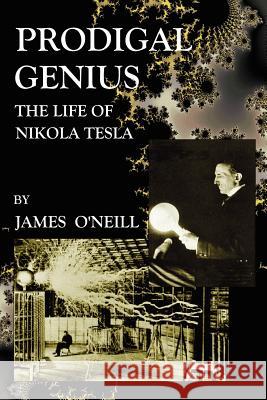Prodigal Genius: The Life of Nikola Tesla » książka
Prodigal Genius: The Life of Nikola Tesla
ISBN-13: 9781585093083 / Angielski / Miękka / 2007 / 336 str.
This was the first full-length biography written on the genius inventor, Nikola Tesla. The author was a Pulitzer Prize-winner and personal friend of Tesla, who once said the author understood him better than any man alive. It is reflected well in this highly detailed work. Much of the information in this book was personal and important, but might otherwise not have been known had O'Neill not documented it. The immense genius of Tesla resulted from a mind that could see an invention in 3-D, from every angle, within his mind before it was easily built. His dimensions and part sizes were always perfect. He never tested parts; they always worked. Most of his inventions were electrical in nature, with dozens of his patents now being used around the world. Much is revealed on Tesla's eccentric personality, his competition with Thomas Edison, and how he made his first million before the age of forty. Money was not important to him, however, nor was The Nobel Prize, which he refused to accept. It was always the science that came first. Due to the author's friendship with him, we are allowed an up close and intimate view into the mind of this genius inventor.
This was the first full-length biography written on the genius inventor, Nikola Tesla. The author was a Pulitzer Prize-winner and personal friend of Tesla, who once said the author understood him better than any man alive. It is reflected well in this highly detailed work. Much of the information in this book was personal and important, but might otherwise not have been known had O'Neill not documented it. The immense genius of Tesla resulted from a mind that could see an invention in 3-D, from every angle, within his mind before it was easily built. His dimensions and part sizes were always perfect. He never tested parts; they always worked. Most of his inventions were electrical in nature, with dozens of his patents now being used around the world. Much is revealed on Tesla's eccentric personality, his competition with Thomas Edison, and how he made his first million before the age of forty. Money was not important to him, however, nor was The Nobel Prize, which he refused to accept. It was always the science that came first. Due to the author's friendship with him, we are allowed an up close and intimate view into the mind of this genius inventor.











